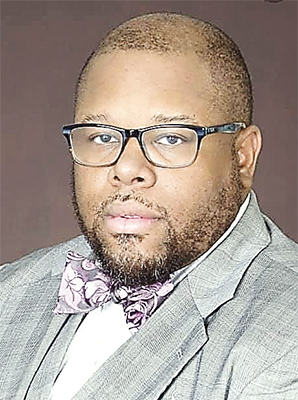Leaders Seek Role In Ossining Response To Police Reform

A group of 23 community leaders in Ossining has petitioned the Village Board of Trustees, seeking a seat at the table in the police reform process set forth by Governor Andrew Cuomo.
The leaders were responding to a decision by the Board of Trustees earlier this month to enter into a contract with the International Association of Chiefs of Police (IACP) to serve as facilitators for the collaborative process.
At a meeting with Mayor Victoria Gearity on September 1, NAACP President Aaron Moore expressed frustration that the village had issued a request for proposals and selected a facilitator without involving community stakeholders in the process.
“The village rushed out the RFP with a two week deadline for proposals. The decision to select the Police Chiefs to guide the police reform process appears to be a serious conflict of interest,” Moore said. “Officer accountability is the key change we need at the Ossining Police Department. Will having a police organization in charge of reform address that need?”
The letter sent by the community leaders on September 9 recommended that the Village Board consider the application of Matrix Consulting Group and asked to be a part of the interview process in reconsidering the initial selection of IACP.
In addition, the group asked that the mayor appoint a Collaborative Advisory Committee to guide the process and create the plan for reforming the Ossining police.
Pastor Shaun Jones of the Star of Bethlehem Baptist Church, one of those signing the letter, emphasized the importance of community involvement in the process. “The Ossining police interact with dozens of ethnic and cultural communities,” he said. “Communities of color and the Ossining police Department already have a strained relationship. The village can begin to bridge the divide by listening to the expressed needs and feelings of the black and Hispanic community that believe that a true reform process may be the difference between life or death for our sons and daughters after an interaction with the police.”
“Without the trust of the community, no reform process can be effective,” said Bishop Joan Whittaker, Pastor of HORAC Ministries. “I hope the village will do the hard work necessary to engage the people who have the greatest stake in a police force that is effective and respectful of the community it is sworn to protect.”
Moore detailed the fundamental changes that the group wants the Police Reform and Reinvention Collaborative to consider. In addition to officer accountability, they include include a policy for the use of force, demilitarization of the department, officer body cameras, empowerment of the Civilian Police Complaint Review Board, privacy protections, and transparency in the department’s budget, hiring, and promotion policies.
“Ossining can, in its own way, lead the way by engaging all stakeholders and winning buy-in from everyone affected by our local system of law enforcement,” the leaders stated in their letter. “The Board must recognize that this will be a difficult process whose success cannot be taken for granted. Involving stakeholders in every aspect of the process is an essential component of building a robust and lasting Collaborative.”
In a letter to the Ossining community last week, Gearity stated “The Village recognizes this undertaking as an opportunity to affirm our values and strengthen community relations with law enforcement.”
“We believe Black Lives Matter and we support our local police force. These positions are not mutually exclusive. In fact, they are both essential for a healthy and safe community,” Gearity stated. “Ossining is unique among Westchester communities in our approach to responding to the executive order. The Village Board determined that engaging a facilitator with expertise in law enforcement, and the ability to convene diverse community stakeholders, is the best approach for creating the plan to improve our local police department.”
“Ossining benefits from having an engaged, diverse community made up of individuals and groups that are dedicated to advancing justice. The foundation of our police department is community policing,” she continued. “Essential for the success of Ossining’s Police Reform and Reinvention Collaborative is engaging community stakeholders that have confidence in the process. To ensure the voices of Ossining’s diverse community are heard, the working committee will include representation from all disenfranchised groups.
“We are aware of the risks involved with this work. We risk falling into the trap of polarized rhetoric that minimizes complex history into choosing one side or another,” Gearity stated. “We risk our staff’s ability to move forward on the initiatives already on their plate which require their attention and are of importance to other stakeholders in our community. We risk apathy from the amount of incidents of negative police interactions we see in the country. We risk alienating our local police force. We are also aware that this is an opportunity to strengthen our community—building greater trust between marginalized community groups and local law enforcement.”

Rick has more than 40 years’ experience covering local news in Westchester and Putnam counties, running the gamut from politics and crime to sports and human interest. He has been an editor at Examiner Media since 2012. Read more from Rick’s editor-author bio here. Read Rick’s work here: https://www.theexaminernews.com/author/pezzullo_rick-writer/
